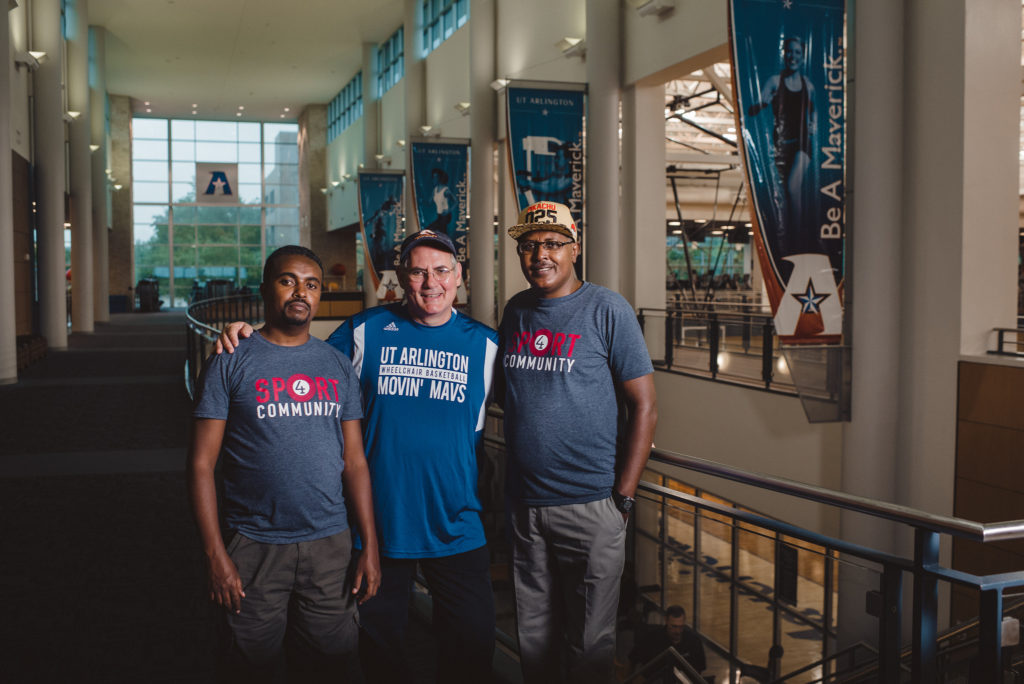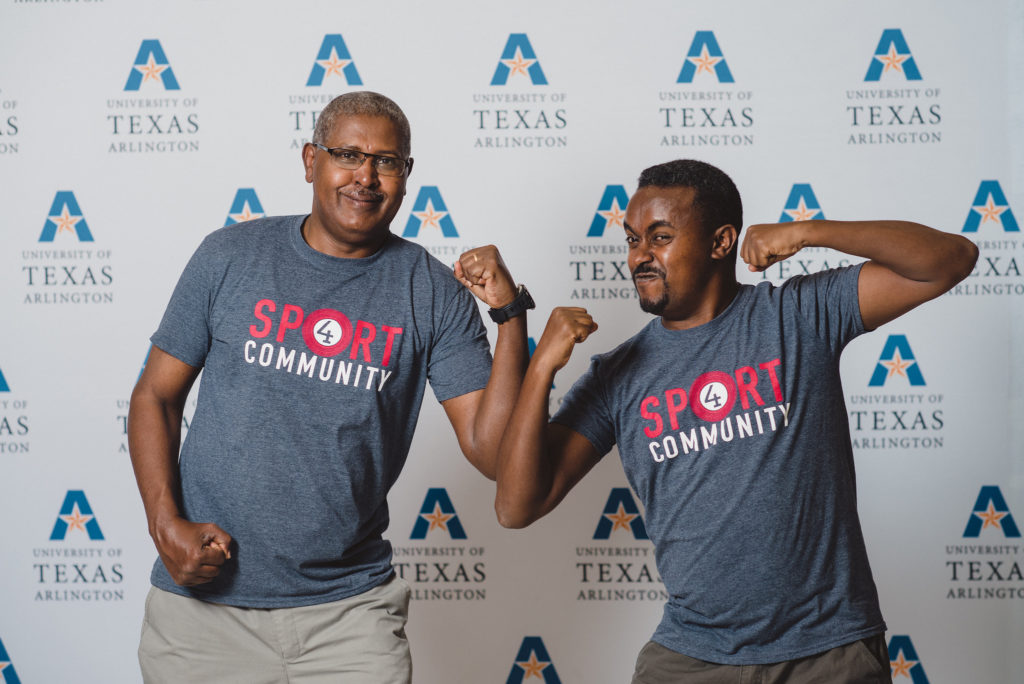Ethiopian deaf sports advocates dream big at UT-Arlington
By Brian Canever, Center for Sport, Peace, & Society September 12, 2016For more than a decade, two Ethiopian men have partnered to promote the rights of their country’s Deaf community by creating educational and sports programs that impact hundreds of lives yearly. Alemayehu Teferi and Eyasu Hailu Tamene are colleagues, close friends, and advocates. After being selected among the inaugural GSMP: Sport for Community program to empower leaders in the disability sport movement, the duo traveled together to Arlington, Texas for a three-week mentorship experience at one of the nation’s most diverse universities, under the guidance of one of its leading advocates for disability rights.
Located on a sprawling campus in North Texas, the University of Texas-Arlington enrolls more than 51,000 students from 100 countries, ranking it among the nation’s top five institutions for undergraduate diversity. Almost 50 percent UTA’s student population is made up of ethnic and racial minorities, with 12 percent of students coming from overseas. Within this cultural melting pot, Doug Garner serves as the assistant director of campus recreation for adapted sports and the head coach of the seven-time national champion men’s wheelchair basketball team, the Movin’ Mavs. A man with a passion for empowering people and seeing everyone with the same eyes, Doug was recognized with an award from The White House in 2014 for his work to empower students with disabilities, injured service veterans, and members of the North Texas community who face disability.

Alemayehu Teferi and Eyasu Hailu stand with mentor Doug Garner at the facilities for adapted sports at the University of Texas-Arlington
Doug immediately formed a bond with Alemayehu and Eyasu. The latter even compared him to Sewnet Bishaw, a professional soccer coach who in 2014 led the Ethiopian national team to qualification in Africa’s continental soccer tournament for the first time in 31 years.
“Doug has so much energy and determination,” said Eyasu, a deaf studies and sign language professor at Addis Ababa University “Doug is like our very own Sewnet Bishaw. I don’t think I can find anyone else in Ethiopia like Doug.”
Over the course of the three weeks, the trio worked to create distinct plans of action for Alemayehu and Eyasu. Serving as the president of the Ethiopian Deaf Sports Federation since it launched in 2014, Alemayehu dreams of creating a deaf sports movement in his country by training a generation of referees and officials, sign language interpreters, coaches, and families on the significant role sport plays in the integration of people with disabilities into everyday society.
“Sport is the right of every person and it must be all-inclusive” Alemayehu said. “In Ethiopia, deaf sport is young. But, as one of its leaders, I want international experiences like Sport for Community because it allows me to transfer new knowledge back to my country. I have never seen facilities like these. There is a spirit of philanthropy and volunteerism here that we lack because of poverty. Although this environment is knew, I dream of laying a bright future for the Deaf and people with disabilities in my country with everything I am learning.”
From a sports perspective, Doug was able to complement Alemayehu’s desires for his country by utilizing his almost two decades of experience as a wheelchair basketball coach who has won games at the local, university, national, and international level. Both Doug and Alemayehu share a strong belief in sports’ ability to transform the mentalities of parents, who often fear allowing their children to participate because they think they might suffer further injury or be discriminated against by their peers.

Alemayehu and Eyasu, posing together at UTA, have been friends and colleagues for years working to empower Deaf Ethiopians
“The best part of my journey in adaptive sports is the smiles of the kids and the parents being themselves, and challenging themselves,” Doug said. “It is the parents crying because they never thought their kids could really be who they are. Sport is acceptance. Sport goes beyond winning and losing. It is the vehicle that allows everyone, regardless of their background, to reach their full potential as human beings.”
Eyasu shares the same passion for sport, but works from within the higher education system to bring change. Much like Doug, who previously taught courses at a junior college in Arkansas and works closely with professors in the disability studies minor at UTA, Eyasu believes that academics can drive a deeper understanding of sports’ benefits, in particular when it comes to shifting attitudes of disability in Ethiopia. After already developing the first bachelor’s degree in sign language and deaf culture with Alemayehu, he plans to develop a second bachelor’s degree in deaf sports at Addis Ababa.
“It may takes lots of time — 10 years or even more than that,” Eyasu said. “Attitudes do not change overnight. And for my plan to succeed we need to work hard on shifting the image of people with disabilities and Deaf people. Many people in Ethiopia believe that we can’t. But sport is one way to show that we can.”
View more photos and quotes from the Center’s visit to UT-Arlington to see Alemayehu, Eyasu, and Doug on Facebook (link)
